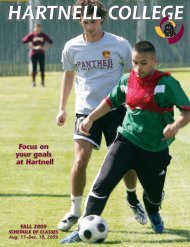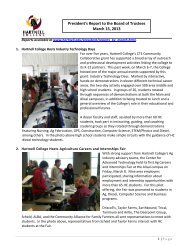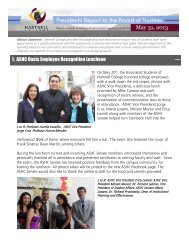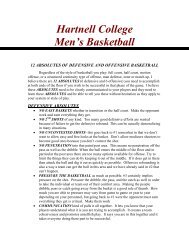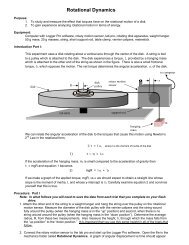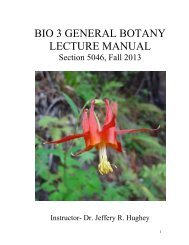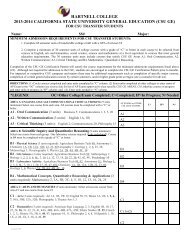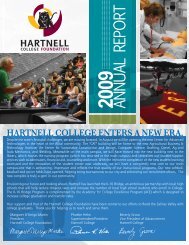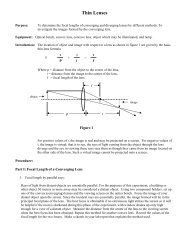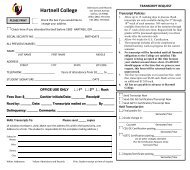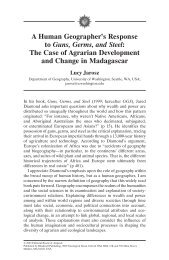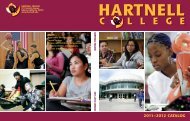Accreditation - Hartnell College!!
Accreditation - Hartnell College!!
Accreditation - Hartnell College!!
You also want an ePaper? Increase the reach of your titles
YUMPU automatically turns print PDFs into web optimized ePapers that Google loves.
Institutional Self Evaluation – 12-05-12<br />
Human Resources. The group plans and approves flex activities, and encourages faculty<br />
members to develop and present their own activities. Topics range from teaching<br />
methodologies to the sociology of students to technical training to presentations by outside<br />
speakers on a variety of subjects.<br />
Self Evaluation<br />
When <strong>Hartnell</strong> <strong>College</strong> was placed on probation in 2007, two of the seven concerns referred<br />
to timely curriculum revision and the development of student learning outcomes. As<br />
documented in previous progress reports, the Board allocated resources to update hundreds<br />
of course outlines (IV.A.53). In response, the college has evolved mechanisms to stabilize<br />
this effort and ensure that curriculum is current and of high quality.<br />
Faculty ―curriculum leaders‖ provided assistance in this effort. These leaders were<br />
longstanding members of the curriculum committee and were selected not only for their<br />
expertise but to provide the necessary breadth of knowledge to assist. The leaders were given<br />
reassigned time and met biweekly with the Curriculum Chair and the Vice-President of<br />
Academic Affairs, functioning as a screening committee that recommended curriculum to the<br />
full committee. Curriculum leaders worked with individual faculty to ensure that the revision<br />
schedule was met. In Fall 2011, the curriculum leader program gave way to the appointment<br />
of a Dean of Curriculum and Instructional Support. These changes are reflected in the new<br />
curriculum workflow process that was presented to the Academic Senate in February, 2012.<br />
Thus, the combination of faculty expertise and institutional commitment provided muchneeded<br />
support for curriculum development.<br />
The Full-Time Faculty Hiring Committee developed a rubric for hiring considerations that<br />
includes three-year enrollment data, the number of current full-time faculty (and consults the<br />
seniority list regarding the likelihood of imminent retirements), the potential for growth in<br />
the program, the availability of well-qualified part-time faculty, the breadth of expertise<br />
among the existing faculty, and the full-time faculty obligation number (IV.A.56). The<br />
committee presents a three-year hiring plan to the Resource Allocation Committee, where the<br />
analysis is shared and recommendations made based on need and available resources. Given<br />
the seniority patterns among the faculty, the committee identified more positions than the<br />
college can currently afford to fill, but sixteen new faculty have been hired since the 2007<br />
site visit.<br />
The Faculty Professional Development Committee has been revitalized during the last year.<br />
Response to the invitation to develop activities, as well as participate in them, has been<br />
enthusiastic, and more than fifty hours of flex-approved activity have been scheduled. A<br />
calendar of events has been placed on the PDC website (IV.A.19) which has greatly<br />
facilitated planning.<br />
Committee members conducted self evaluations in October 2011. The Curriculum<br />
Committee reported that CurricUNET works reasonably well to support updating, tracking,<br />
and strong courses and programs. The program planning module PlaNet (GoverNet) is more<br />
recalcitrant, but academic groups continue to work with the program and meet their deadline.<br />
Page 283



